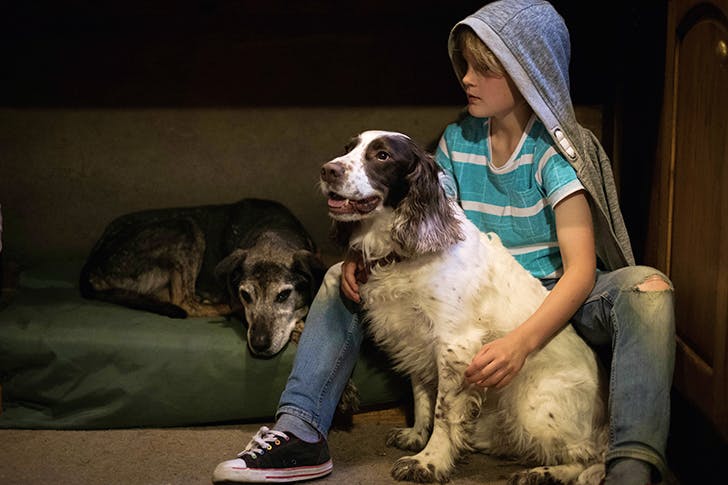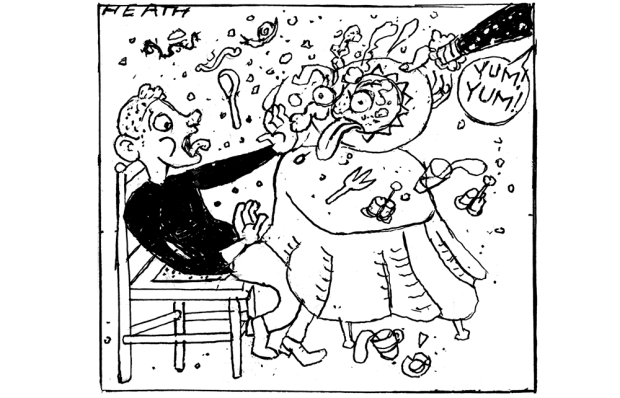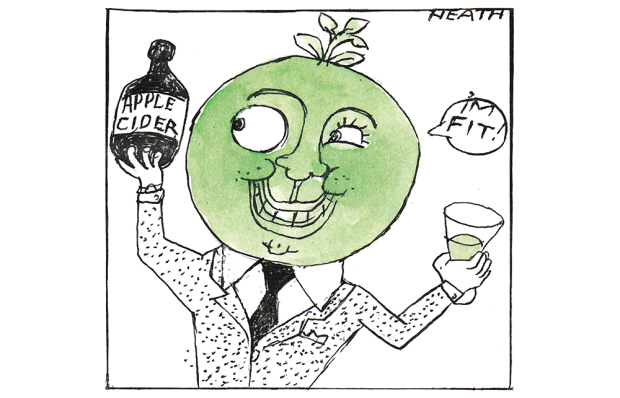Henry, our springer spaniel, has died, suddenly and prematurely. With the passing weeks, we are becoming accustomed to the strange stillness his absence has left behind, and I no longer expect to meet him hurtling around the house in motiveless delight or to find him sidling against my leg as I sit in the kitchen. We do adapt quite quickly to life post-dog, though the sadness lingers.
Sir Walter Scott knew this. ‘I have sometimes thought of the final cause of dogs having such short lives,’ he wrote, ‘and I am quite satisfied it is in compassion to the human race; for if we suffer so much in losing a dog after an acquaintance of ten or 12 years, what would it be if they were to live double that time?’
The allotted ten or 12 years, or eight and a half in Henry’s case, are also a lifetime from the perspective of a child. Our daughter was three when Henry joined us, and ten when he left. She can barely remember life without him by her side.
Although a friend to all, Henry was particularly drawn to children and enjoyed a devoted and ludic relationship with the girl. They went adventuring together; he willingly performed his rather limited repertoire of tricks for her; he slept in her room. Most of all, he offered her unquestioning companionship and comfort. Any great adversity or perceived injustice would see her retreat to her room with the dog. She would cry into his fur and he would love every second of it.
Every child should have a dog. Children thrive on giving and receiving love and as Kipling said in his poem ‘The Power of the Dog’: ‘Buy a pup and your money will buy/ Love unflinching that cannot lie.’ It must be the only love that money can, in a way, buy.
As well as emotional nourishment, dogs bring tangible health benefits. It is well documented that just about the most advantageous thing parents can do for their offspring is to introduce a dog to the household. Babies who live with a dog are, according to some research at least, 31 per cent more likely to be healthy in their first year than their dog-deprived counterparts, because the presence of a dog enriches the infant microbiome and stimulates a robust immune system. Cats offer only a fragment of the same benefit — and little else besides.
Dogs do occasionally like to test the character of their owners with particular challenges, but Henry’s criminal tendencies, which mostly involved eating things that were either revolting (putrified corpses) or idiotic (linoleum), were offset by his willingness to enslave himself to the girl. In return he hoped for a degree of absolution, which was usually forthcoming, when, for example, he vomited a rabbit’s backbone on to the bedroom floor or chewed the legs off a favourite toy. Forgiveness is another thing a dog encourages.
Life’s hectic arc is better experienced for the first time through the canine microcosm. The great tragedy is that the final and harshest lesson the dog teaches is the one the child must face alone, with no fur to cry against. ‘So why in Heaven (before we are there)/ Should we give our hearts to a dog to tear?’ cried Kipling. Because — as he knew well and our child knows now — of that shared, unflinching love.
Got something to add? Join the discussion and comment below.
Get 10 issues for just $10
Subscribe to The Spectator Australia today for the next 10 magazine issues, plus full online access, for just $10.














Comments
Don't miss out
Join the conversation with other Spectator Australia readers. Subscribe to leave a comment.
SUBSCRIBEAlready a subscriber? Log in